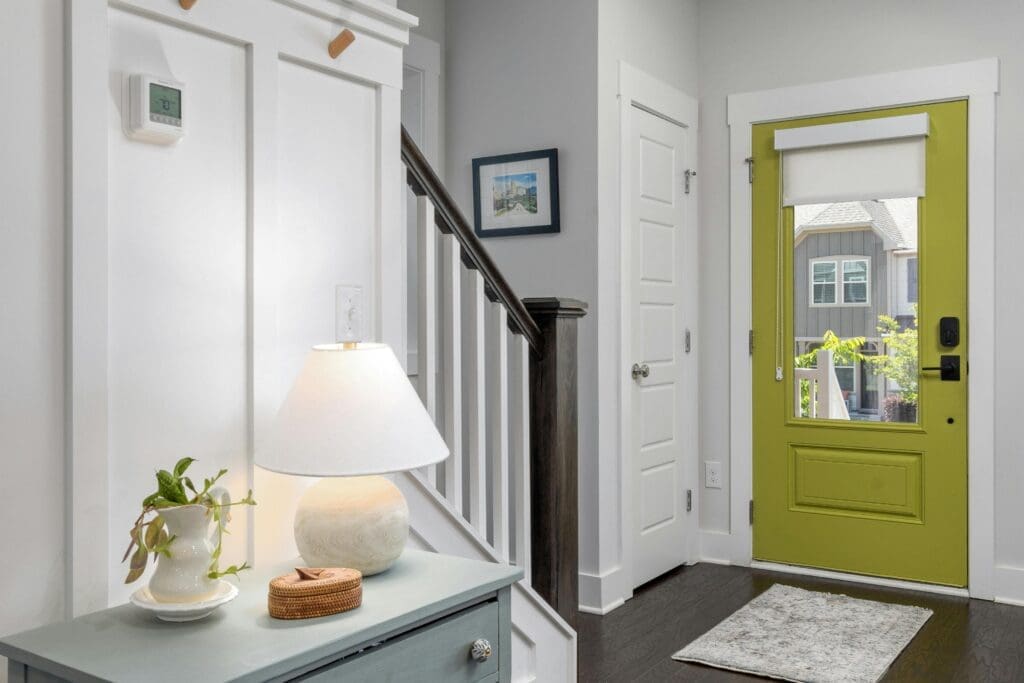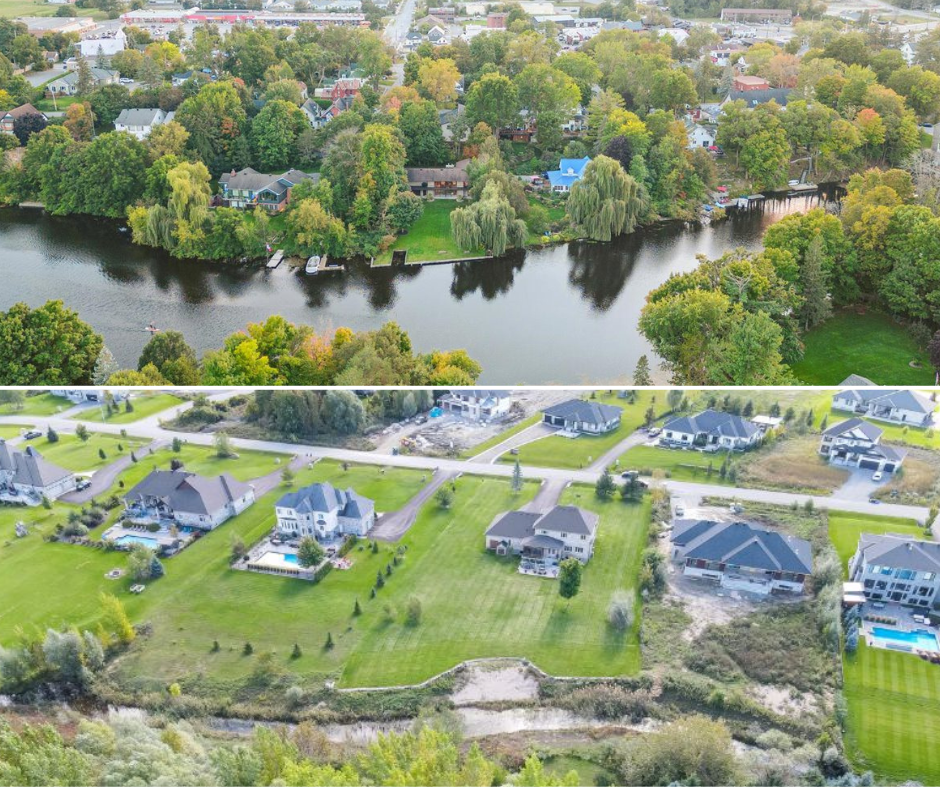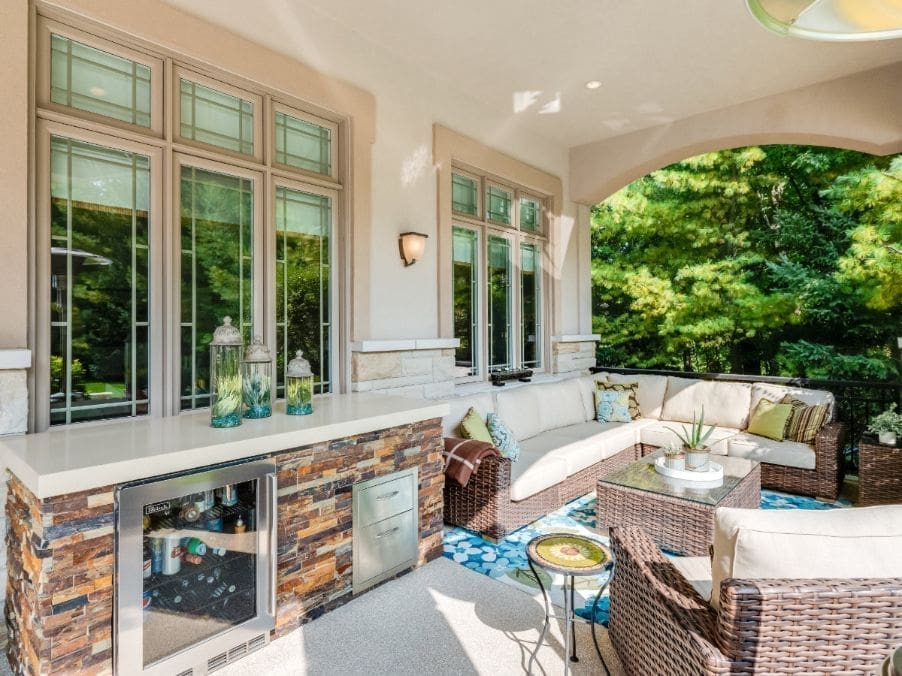
April 15, 2025 | Buying
What Utilities Do You Need For a House?
Buying your first home is one of life’s most exciting milestones. Between the thrill of house hunting and the joy of getting those keys in your hand, there’s so much to look forward to. But once you’ve found the one, the to-do list grows quickly—and one of the most important tasks is setting up the utilities that will make your house feel like home.
So, what utilities do you need for a house? What’s included, what’s property-specific, and when should you set them up? This guide answers all of that (and more) with the clarity and confidence every first-time buyer deserves.
First Things First: What Are Utilities?
Utilities are the essential services that keep your home functional and comfortable—things like electricity, water, heat, internet, and waste collection. These aren’t included in your mortgage and must be set up and paid for separately. Some are provided by municipalities, while others are arranged through private providers.
Buying a home for the first time? You may find these blogs helpful!
- Am I Ready to Buy My First Home?
- How to Budget For Your First Year of Homeownership
- What to Know About Buying a New Build Home in Ottawa
Core Utilities Every Home Needs
Electricity
Depending on your location, service may be provided by Hydro Ottawa, Hydro One, or another regional utility. We recommend contacting your provider 2–3 weeks before closing to schedule activation and avoid any downtime.
Water and Sewer
These are usually managed by your local municipality or township and are billed quarterly. In rural areas, homes may use a well and septic system instead, which requires different maintenance. Confirm with your REALTOR® or home inspector what your home is connected to so you can prepare accordingly.
Natural Gas (Heating)
Heat is commonly provided by Enbridge Gas across Eastern Ontario. If your home doesn’t have access to natural gas, it may rely on propane or oil. Be sure to verify your system early and arrange for fuel delivery if needed.
Internet & Cable
They may not be as essential as water or electricity, but they’ve become daily necessities for most households. Providers vary by area—common options include Bell, Rogers, and regional service providers. Installation times can vary, especially in rural areas, so it’s best to book early if you rely on high-speed internet for work or streaming.
Waste Collection (Garbage & Recycling)
These are typically handled by your municipality and may be included in your property taxes. Collection schedules and bin requirements differ by township, so check with your local office before move-in.
Property-Specific Utilities and Services
If you’re purchasing a rural or semi-rural property, your home may require additional services not provided municipally—but these are just as essential.
Propane or Oil Heating
Homes outside of natural gas service areas often rely on propane or oil. If that’s the case, make sure the tank is full before you move in and establish a delivery schedule with a local provider.
Well and Septic Maintenance
Homes without municipal water and sewer will use a private well and septic system. As the homeowner, you’ll be responsible for water quality testing, septic inspections, and routine maintenance like pumping.
Security System Monitoring
Many homeowners choose to install a monitored alarm or smart home system, even though it’s not a requirement. These can be professionally installed or self-managed, depending on your preference.
Landline Telephone Services
While less common today, some homeowners still opt for a landline—particularly in areas with limited cell coverage.
How Much Do Utilities Cost Per Month?
Monthly utility costs vary depending on your home’s size, energy efficiency, location, and usage habits. Electricity and heating bills can fluctuate significantly with the seasons—especially during cold Ottawa winters or hot, humid summers. Internet and cable rates vary by provider and service package.
To get a realistic idea of monthly costs, ask the seller—through your REALTOR®—for copies of recent utility bills. Reviewing a full year of past usage gives you the best insight and helps you create a realistic budget.
What First-Time Buyers Should Know Before Move-In Day
A few simple steps can make the transition into your new home a lot smoother. Start by organizing your utility account details—things like account numbers, passwords, and service start dates. Whether it’s a spreadsheet or a notepad, having everything in one place makes future troubleshooting much easier.
It’s also smart to budget for activation fees or deposits. Some providers charge one-time setup costs, especially for new builds or first-time accounts.
Once you’re settled in, consider switching to paperless billing and setting up autopay. Most providers offer this option, and it’s one less thing to manage as you get comfortable in your new space.
And don’t forget to ask for past utility bills before closing. It’s a small request that offers valuable insight into what you can expect month to month.
Hoping to find the right Ottawa neighbourhood for you? Check out these other blogs next!
- Does Ottawa Have Walkable Communities?
- Ottawa’s Commuter-Friendly Communities
- Manotick Vs. Greely, Where Should You Buy?
More Than Just a Move
Buying your first home is a big milestone—and it comes with a lot of questions. At The Wright Team, we believe no question is too small when it comes to helping you feel confident and at home. Whether it’s navigating closing day or figuring out how to set up your utilities, we’re here with answers, guidance, and support.
And when questions come up—as they always do—just ask. We’re here when you’re ready.
Whether you’re still browsing or ready to buy, we’re here to help you navigate your first home purchase with clarity and confidence.
Ready to find your dream home in Ottawa? We can help. Call 613-692-0606 to get in touch, or reach us by email at info@ottawahomes.ca.

